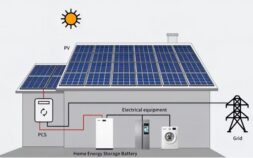MPPT: Maximum Power Point Tracking
MPPT is an algorithm used in charge controllers to extract the maximum power available from a photovoltaic PV module under specific conditions. The voltage at which the PV module can produce maximum power is called the maximum power point or maximum power voltage. MPPT monitors the output of the PV module, compares it to the battery voltage, then determines the best power the PV module can produce to charge the battery, and converts it to the best voltage to deliver the maximum current to the battery.
What is the lifespan of an MPPT solar charge controller?
The lifespan of an MPPT solar charge controller varies depending on the model and usage conditions. Typically, they should last 10 to 15 years without any major problems. However, temperature, humidity, and input fluctuations can affect the lifespan of a PV charge controller.
What does PCU mean in solar power?
The PCU or Power Conditioning Unit is vital in solar power systems. It ensures that solar energy works well with our electrical systems. The PCU converts DC direct current to AC alternating current and intelligently manages solar energy. A solar PCU is essentially a power conversion unit. It uses solar energy to charge batteries. The system uses a solar charge controller, a grid charger, and an inverter.
What is the difference between a PCU and an inverter?
Standalone operation compared to a solar inverter: A solar PCU can operate with or without grid power. Solar PCUs can be used without a grid connection. While inverters can only be used with the Grid, PCUs also work with the grid.
A solar PCU is a more advanced version of a solar inverter that prioritizes solar energy consumption and battery charging, while a hybrid inverter combines the functions of a standard inverter with built-in battery storage capabilities, allowing it to operate both on and off the grid
and effectively act as a backup power source. The main difference is that a PCU focuses on maximizing solar energy consumption and managing energy resources more intelligently, while a hybrid inverter primarily provides the ability to store solar energy in a battery for later use.
















Leave a Reply